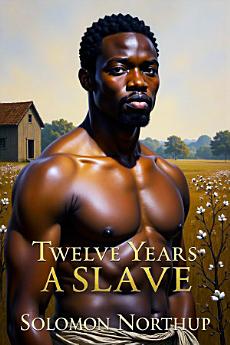Twelve Years a Slave
Tungkol sa ebook na ito
Originally published in 1853, Northup's memoir chronicles his extraordinary journey from being a free African American in New York to being kidnapped and sold into slavery in Louisiana. His narrative stands as a critical historical document, providing an unparalleled perspective on the systemic violence, psychological trauma, and dehumanizing practices of the slave system.
Born a free man in New York, Northup was a skilled carpenter, musician, and family man whose life was violently disrupted when he was lured to Washington, D.C., drugged, and sold into slavery. Stripped of his identity and legal rights, he was transported to Louisiana, where he endured twelve years of brutal treatment on various plantations. His account offers a unique, nuanced view of slavery from the perspective of someone who had previously known freedom.
Throughout his narrative, Northup provides meticulous details about plantation life, slave labor, social hierarchies, and the complex relationships between enslaved people and their oppressors. His writing is remarkable for its objectivity, detailed observations, and unflinching examination of the psychological and physical brutality of the slave system. He documents not only his own experiences but also the stories of fellow enslaved individuals, creating a comprehensive portrait of systemic oppression.
The book becomes a powerful testament to human dignity and survival. Despite facing unimaginable hardships - including physical abuse, emotional manipulation, and constant threat of violence – Northup maintains his sense of self and never loses hope for eventual freedom. His intelligence, musical skills, and ability to read and write become both a source of survival and a form of resistance against the dehumanizing system.
Northup's narrative played a crucial role in the abolitionist movement, providing irrefutable evidence of the horrors of slavery. His detailed account helped challenge prevailing racist narratives and contributed significantly to the growing anti-slavery sentiment in the North. The book's publication was a pivotal moment in American literary and social history, offering a powerful counter-narrative to pro-slavery propaganda.
The memoir is also a remarkable example of survival literature, documenting not just the physical challenges of slavery but the complex emotional and psychological landscape of survival. Northup's ability to maintain his humanity, retain his sense of identity, and ultimately secure his freedom makes his story a profound exploration of resilience, hope, and the indomitable human spirit.
His eventual rescue, made possible through the help of free African Americans and sympathetic white allies, highlights the complex racial dynamics of the pre-Civil War era. The legal battles that followed his recovery became an important chapter in the struggle for African American rights and recognition.
Twelve Years a Slave continues to be a critical text in understanding American history, racial dynamics, and the long-lasting impacts of slavery. Its unflinching portrayal of systemic racism, combined with Northup's remarkable storytelling, ensures its place as a seminal work in African American literature, historical documentation, and human rights discourse.
For readers seeking a powerful, authentic account of slavery, a deep exploration of American history, or a testament to human resilience, Northup's memoir remains an essential, transformative reading experience that continues to resonate with contemporary discussions about race, freedom, and social justice.
Tungkol sa may-akda
Solomon Northup was an extraordinary African American whose life story transcended the brutal realities of 19th-century slavery, embodying resilience, intellectual courage, and an unwavering commitment to human dignity. Born a free man in July 1807 in Minerva, New York, Northup lived a remarkable life that would become a pivotal narrative in understanding the complex landscape of American slavery.
A skilled carpenter, musician, and farmer, Northup enjoyed relative prosperity and freedom in the North with his wife Anne Hampton and their three children. His life took a devastating turn in 1841 when he was kidnapped in Washington, D.C., by slave traders who falsely claimed he was a runaway slave. Drugged, beaten, and stripped of his identity documents, Northup was forcibly transported to Louisiana and sold into slavery under the name Platt Hamilton.
For twelve years, Northup endured unimaginable hardships on Louisiana plantations, including those owned by Edwin Epps and William Ford. Despite the dehumanizing system of slavery, he maintained his dignity, intelligence, and hope. His education, musical skills, and ability to read and write became both survival tools and subtle acts of resistance.
Northup's extraordinary journey was marked by his strategic survival and eventual rescue. With the help of sympathetic white allies and free African Americans, he managed to communicate his true identity and legal status. In 1853, he was legally restored to freedom, a rare and remarkable outcome for an enslaved person of that era.
Immediately after his liberation, Northup collaborated with David Wilson to write his memoir, Twelve Years a Slave, published the same year. The book became a critical document in the abolitionist movement, providing unprecedented firsthand evidence of slavery's brutality. His detailed, objective account challenged prevailing racist narratives and significantly contributed to the growing anti-slavery sentiment in the North.
Beyond his book, Northup became an active participant in the abolitionist movement. He lectured extensively, shared his experiences, and worked to support the Underground Railroad. His narrative was a powerful weapon in the fight against slavery, offering a nuanced, deeply personal perspective on systemic racial oppression.
The details of Northup's later life remain somewhat mysterious. Historical records suggest he continued his advocacy work, though the exact circumstances of his later years are not fully documented. His legacy, however, is profound and enduring.
In 2013, his story gained renewed prominence through the Academy Award-winning film adaptation directed by Steve McQueen, introducing a new generation to Northup's remarkable journey of survival, resilience, and ultimate triumph over one of the most inhumane systems in American history.
Solomon Northup represents more than a historical figure – he symbolizes the unbreakable human spirit, the fight for dignity, and the transformative power of truth in the face of systemic oppression.








